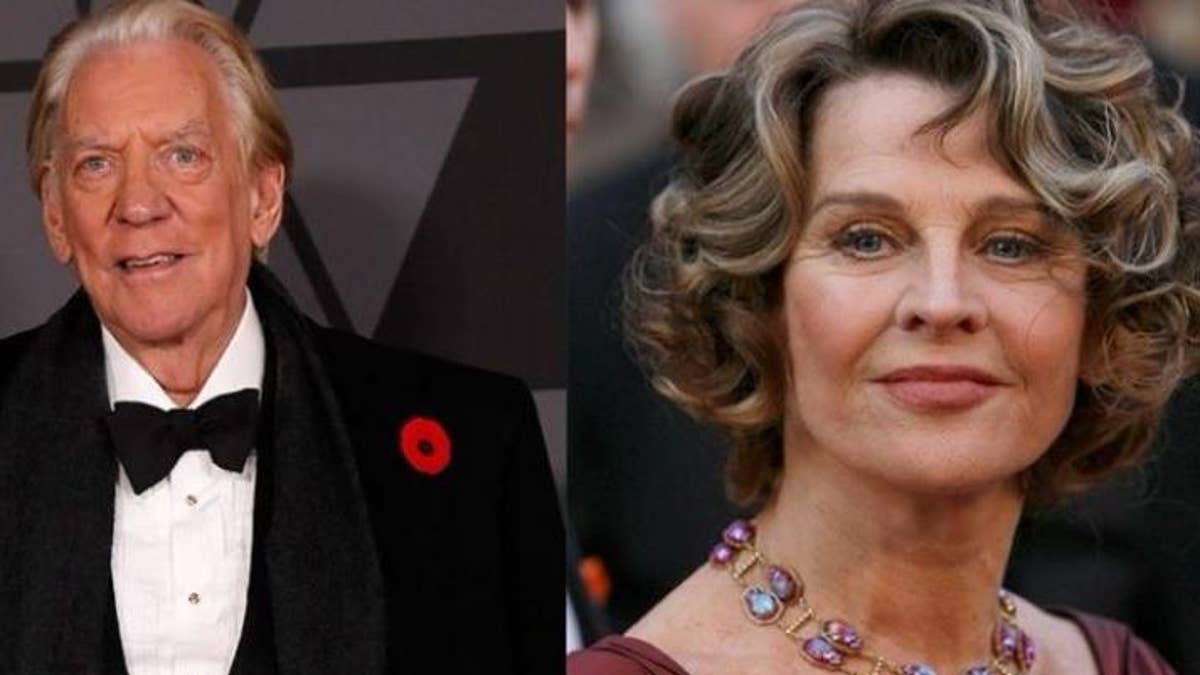A pivotal moment in cinematic history has resurfaced with claims that the steamy love scene between Julie Christie and Donald Sutherland in the 1973 film “Don't Look Now” may have been more than just acting.
The enduring question of whether the on-screen passion was genuine has lingered for decades, fueling speculation and debate among audiences and industry insiders alike.
Despite assertions from the stars that their chemistry was a result of skillful acting and expert direction, a recent revelation challenges this narrative.
Peter Bart, a former editor at Variety and Paramount Pictures executive, recounts a firsthand experience from the set in Venice that sheds new light on the infamous scene.
According to Bart's upcoming book, “Infamous Players: A Tale of Movies, the Mob, (and s=x),” director Nicolas Roeg made a cryptic remark upon Bart's arrival, hinting at the authenticity of the on-screen intimacy.
Rumors circulating within the film industry have long suggested that the love-making depicted in “Don't Look Now” was more than just a convincing performance.
Some accounts even allege the existence of out-takes from the scene being privately viewed in exclusive settings.
The controversy surrounding the film, adapted from a story by Daphne du Maurier, was further fueled by its explicit content, pushing boundaries during a time when such scenes were unconventional.
Julie Christie, a distinguished British actress known for her award-winning roles in films like “Darling” and “Dr Zhivago,” alongside Canadian actor Donald Sutherland, found themselves at the center of this cinematic storm.
Despite the challenges of portraying such intimate moments on screen, Christie commended Sutherland for his professionalism and support during the filming process.
Their collaborative efforts, coupled with skilled editing, resulted in a scene that resonated with audiences on a deeper level.
In a surprising twist from Bart's forthcoming book, it is revealed that Warren Beatty, who had a personal history with Christie, intervened in the editing process of the love scene due to its perceived graphic nature.
Christie, who later distanced herself from the Hollywood limelight, reflected on the complexities of fame and relationships, likening celebrity status to a perpetual nuisance.
Throughout her career, Christie's versatility as an actress has been celebrated, culminating in an Oscar nomination for her poignant portrayal of an Alzheimer's patient in “Away From Her.”
Sutherland, in a candid interview, emphasized the role of editing in shaping the perception of the love scene, transforming it from a voyeuristic display to a relatable and evocative cinematic experience for viewers.
As the legacy of “Don't Look Now” endures, the revelations from Bart's account offer a fresh perspective on the intersection of artistry, intimacy, and storytelling in film.
The exploration of reality versus illusion in on-screen relationships continues to captivate audiences and provoke discourse within the realm of cinema.































